
2023 - 2024



2023 - 2024

As we close another year, it is with great enthusiasm that we present our 2023 - 2024 annual report. This year has been one of growth, innovation, and collaboration. We are incredibly proud of what we have accomplished and grateful for the unwavering support of our dedicated PHO whānau, partners and community.
This report reflects the milestones we have achieved and the collective effort and passion that drives us forward. From navigating new and existing challenges to embracing opportunities for development, we have worked together to make a meaningful impact. We are pleased to share these highlights with you, showcasing how we have nurtured our vision to become our reality.
Looking ahead, we remain committed to our vision, mission and values, continuously striving to enhance our services and keep our communities well. Your support and engagement have been instrumental in our success, and we invite you to explore the stories, initiatives and achievements within these pages.
We will continue to build on this foundation, exploring new possibilities and working towards an even brighter future for primary health care. Thank you for being an integral part of our journey. We look forward to continuing this path with you by our side.

What a year it has been! As we reflect on the past twelve months, it’s clear that we have been making meaningful progress with exciting developments. Our diabetes strategy has taken its first steps toward implementation, and we are witnessing the ongoing evolution of our healthcare reforms. Our partnerships with iwi and providers have strengthened, and we’ve seen a change in our co-chair lineup. Additionally, the Practice Plus service has been extended to support after-hours care in our rohe, further enhancing our community's access to healthcare.
At the WBOP PHO, diabetes has remained a key focus, in line with our organisational strategy. A dedicated team has been working diligently on a strategy of activities and we’re beginning to see the fruits of this exciting work. One notable achievement is the Diabetes Dashboard, which we have co-designed and are preparing to roll out to General Practices in the latter half of 2024.
This dashboard will equip primary care clinicians with comprehensive and summarised data about the whaiora under their care, helping identify areas of need and track improvements effectively. We now have a detailed project roadmap in place, with an initial focus on Tāne Māori aged 30 to 60 years.
“We continue to expand our focus beyond health, to embrace overall wellbeing, ensuring that equity remains at the heart of everything we do.”
We also cultivated a closer relationship with our secondary care colleagues. This collaboration is crucial in our mission to reduce diabetes in our community and ensure seamless continuity of care when individuals require hospital services.
Despite the external challenges we face, including a new government, the disestablishment of Te Aka Whai Ora, and the establishment of the national and regional commissioning structure with Te Whatu Ora | Health New Zealand, we remain committed to our purpose.
We continue to expand our focus beyond health, to embrace overall well-being, ensuring that equity remains at the heart of everything we do. The community partnerships, both now and in the future, provide us with the opportunity, capacity, and capability to make a meaningful impact on the population.
This year, we celebrated two decades of our commitment to equity and our Joint Venture between local iwi and Providers Inc. Our steadfast dedication to doing things right, from inception to the present day, remains unwavering.
Our board members, reflecting our 20-year legacy, include Paora Stanley (CEO, Ngāi Te Rangi), whose passion for iwi whānau outcomes has been a cornerstone of our work. While Paora stepped down as co-chair in December 2023, and Graeme Elvin (Ngāti Ranginui) stepped in, we want to express our gratitude for his leadership and are pleased that he continues to serve on the WBOP PHO Board.
In August 2023, we began a promising collaboration with Practice Plus to enhance primary care access in our region. This service acts as a valuable ally, particularly when General Practices are closed, and patients need timely, non-urgent care.
Practice Plus, as the sole virtual provider endorsed by WBOP PHO, offers free afterhours access to children under 14, a significant and thoughtful initiative that has already had a positive impact. With over 75% of practices within our network participating, Practice Plus has quickly become a crucial support, especially during after-hours and festive periods.
As we look to the future, we remain inspired by our achievements and the continued support of our dedicated partners and community. Thank you for your ongoing commitment and collaboration. Together, we can continue to achieve great things.
Ngā mihi,


Dr Dan McIntosh & Graeme Elvin – Co-chairs
Into our second year of health reforms, we continue to see a changing landscape across the health sector. The establishment of the national and regional commissioning structure and more recently the disestablishment of Te Aka Whai Ora, The Māori Health Authority, represent two notable shifts that will need time to settle.
Amid these significant system changes PHOs have continued to provide stability as anchor organisations for their networks, partners and communities. Remaining agile and adaptive to change, WBOP PHO has been exploring new and innovative ways to meet the evolving needs of our networks and the community. These explorations are always underpinned by our commitment to Te Tiriti o Waitangi, our focus on equity and staying true to the values that drive our organisation.
Our enrolled and funded population is now at 212,094 or 80.9% of the enrolled population in the Bay of Plenty, which is still one of the fastest growing regions in New Zealand. Among this population, 16% identify as Māori, 1.8% as Pacific Peoples, and 9.3% as Asian. Additionally, new enrolments averaged 425 per month over the last year, showing steady growth across our rohe.
At the close of our last financial year, we had ambitions to broaden our footprint and support our community with both health and wellbeing, knowing that these go hand in hand and significantly impact health outcomes. We have grown our lifestyle workshops, smoking cessation programmes and consolidated our partnership with Tauranga City Council on the Kāinga Tupu workforce. This partnership sees us working closely with a range of agencies as we co-design a model of care to meet the needs of our unhoused population in the Bay of Plenty.
We have moved the needle on our strategic priorities. You will read about the implementation of our diabetes strategy, ensuring that the whānau-voice was not only heard, but that whānau were included, through a collaborative co-design process. Linking in with this focus, we are proud to announce a dedicated Diabetes Care Coordinator available to our community.
With the IPMHAS (Integrated Primary Mental Health and Addictions Service) now fully embedded into practices, we offer our community another avenue to access health
and wellness services at no cost to whānau. This model of care supports connection with other services and allows practices to offer their patients more options. Alongside this, our mahi with the Stroke Foundation of New Zealand is providing valuable resources and education opportunities to our GP Network and IPMHAS teams.
In addition, we undertook a range of significant projects with our community partners over the last year. Through our Comprehensive Primary and Community Care Teams (CPCT) project, we aim to improve access to health care through new national funding that enables additional allied health roles within practice and community teams. Our Extended Primary and Community Care (EPCC) project looks at making changes to our acute demand service, aiming to adapt current programmes to better meet the needs of our region.
All this great mahi has not gone unnoticed, as we received a visit from Dame Karen Poutasi – Te Whatu Ora | Health New Zealand Board member, Dr Brian Betty – Chair, General Practice New Zealand (GPNZ) and Martin Hefford – Director of Living Well Te Whatu Ora | Health New Zealand. During their visit, we showcased our Tāpiri Mai project, an equity focussed project that is providing improved access through distance health care on Matakana and Mōtītī islands. This project also got a feature spot in NZ Doctor and was presented at the Royal New Zealand College General Practitioners (RNZCGP) conference.
Also of note, is our place as a finalist in the Diversity Awards, under the Ngā Āhuatanga o te Tiriti Tohu category. We entered this category, as our 20-year journey is one that has always been about equity and partners of Te Tiriti o Waitangi, and we continue to celebrate this achievement through our ongoing commitment to being a Te Tiriti dynamic organisation.
“Remaining agile and adaptive to change, WBOP PHO has been exploring new and innovative ways to meet the evolving needs of our networks and the community. ”
I am so proud of what we have achieved over this past financial year, and want to thank our PHO whānau, iwi providers, our practice network and the partnerships we have formed throughout our journey. It is these connections that ensure we keep moving forward, even within these uncertain times.
Whilst the coming year is going to bring more change, it is no surprise that we all support the need for a radical overhaul of primary and community health funding models, to ensure we build sustainability for our workforce and our networks now and into the future.
Arohanui,

Lindsey Webber – CEO
Bethlehem Family Doctors
Bethlehem Medical Centre
– including Ōmokoroa Medical Centre
Cicada Health
Dee Street Medical Centre
Epic Health Medical Practice
Family Doctors
– including
Family Doctors Brookfield
Family Doctors Pyes Pa
Family Doctors The Lakes
Farm Street Family Health Centre
Fifth Avenue Family Practice
Gate Pā Medical Centre
Girven Family Practice
Hairini Family Health Centre
Healthcare on Fifteenth
Katikati Medical Centre
Mount Medical Centre
Ngāti Kahu Hauora
Ōtūmoetai Doctors
Pāpāmoa Beach Family Practice
Pāpāmoa Pines Medical Centre – Whitiora
Poutiri Wellness Centre
Tara Road Medical Centre
Te Puke Medical Centre
Te Puna Medical Centre
Tend – including
Tend Greerton Medical Centre
Tend Bethlehem Town Medical Centre
Tend South City Medical Centre
Tend Pāpāmoa Medical Centre
Green Cross Health
– including
The Doctors Bayfair
The Doctors Bureta
The Doctors Kopeopeo
The Doctors Pāpāmoa
The Doctors Phoenix
The Doctors Tauranga
The Doctors Total Health
The Doctors Welcome Bay
Third Age Health (Tauranga)
The Western Bay of Plenty Primary Health Organisation (WBOP PHO) celebrated 20 years of a unique journey on the 16th of October 2023. Responsible for planning, funding and coordinating primary healthcare across the Bay of Plenty, the joint venture between Ngāi Te Rangi iwi, Ngāti Ranginui iwi, and Western Bay of Plenty Primary Care Providers Inc. (Providers Inc.) solidified its singular partnership over the years, reflecting on the shared vision that gave rise to its existence.
“We were the first and we still are the only PHO to be governed by a unique partnership between iwi and providers. As we celebrate 20 years of this joint venture, we can be really proud of our strength and success in navigating multiple changes and challenges over the past two decades”, described the WBOP PHO, CEO, Lindsey Webber.
The WBOP PHO embodies a dream shared long before its official foundation in 2003. In 1992/1993, First Health and Prime Health organisations emerged from a pilot project funded by the Health Reforms Directorate and the Department of Health. These organisations preceded PHOs and coordinated General Practice. This is when the relationship between providers and iwi became stronger in the region.
One of the founders of the WBOP PHO and its inaugural chairman until 2016, Dr John Gemming, was the Secretary/Chairperson of Prime Health at that time. “When it came to form the PHO, we already had lots of relationships. The idea of doing it together (providers and iwi) wasn’t a new idea for us. We knew, for example, we would have no casting vote. We either came to a consensus or it didn’t happen. We were involved with lots of organisations nationwide, and they couldn’t understand what we were doing”, remembered the now-retired general practitioner.
Instrumental in the formation of the joint venture and a member of the board for 15 years, Colleen Te Arihi worked at Prime Health and First Health as the Māori Liaison. Also known as Aunty Tuki, she led the hui with Ngāti Ranginui, Ngāi Te Rangi and Ngāti Pukenga, sharing the vision of creating the WBOP PHO as 50/50 partnership between providers and iwi. “I was in a place to pull it off. We understood what the government was planning to do, so we made it, and we were able to morph into a PHO once it became a government policy”, explained Aunty Tuki.
The Ministry of Health’s recommendation at that time was to have a Māori Advisory Committee. A suggestion that Dr John Gemming ignored, despite the flak he received, he declared “If we were going to do this, we needed to do it together”.

During the 20-year celebration of WBOP PHO, at Hairini Marae, the birthplace of WBOP PHO, CEO Lindsey Webber highlighted the organisation’s pioneering spirit in her speech.
“This work for equity, particularly for Māori, is embedded in our vision, mission and values and is reflected in the partnerships we hold. We were on this path before it was paved”, she said.
Our CEO’s
Roger Taylor, CEO 2003 – June 2018
Ross Smith, Interim CEO July 2018 – November 2018
Phil Back, Interim CEO December 2018 – June 2019
Lindsey Webber, CEO July 2019 – present day.
From Katikati to Whakatāne, as of October 2023, the WBOP PHO served close to 208,000 people enrolled through its 32 practices. The organisation plays a crucial role in planning, funding, and coordinating healthcare initiatives in collaboration with the professionals within these health providers. United in purpose, these teams become a whānau, driven by a collective mission to enhance health outcomes throughout the Bay of Plenty Together, they navigate challenges and celebrate shared successes.
“I have been extremely privileged to be involved with the PHO over the last 20 years. The thing I am most proud of is the many great and strong relationships that have been formed.
Lorraine Anderson, Practice Manager at Gate Pā Medical Centre Ltd
“I am the Practice Manager at Te Puke Medical Centre, and the WBOP PHO team have been amazing at introducing me to the range of services and support they provide. With the industry constantly changing and challenges we face we are very glad to have the support and guidance of the organisation.”
Chris Fyfe, Practice Manager at Te Puke Medical Centre
Working alongside our General Practices, community partners and iwi, at the WBOP PHO, we support healthy lifestyles and quality healthcare services for a growing number of people in our local communities.
MĀORI POPULATION ENROLLED: 34,492
TOTAL PATIENT CONTACTS WITH GENERAL PRACTICE: 724,199
MĀORI PATIENT CONTACTS WITH GENERAL PRACTICE: 98,423
The WBOP PHO currently serves 80.9% of the enrolled population living within the Bay of Plenty. Residents are dispersed from Waihi in the west to Ōpōtiki in the east, attending practices from Katikati to Whakatāne. 16.0% of these identify as being Māori and a further 1.8% as Pacific Peoples. People who identify as Asian accounts for 9.3%% of our enrolled population.

NEWBORNS ENROLLED BY 3 MONTHS:
+12.1%
Capitation Based Funding passed directly to the General Practice Network for the enrolled population, was $49,881,106 in the year ended 30 June 2024. This funding is used to provide services that promote population wellbeing and management of personal health. Other targeted funding is received to enable clinical programmes and interventions to address specific areas of primary health care.
PASIFIKA ENROLMENTS: ASIAN ENROLMENTS: 65+ ENROLMENTS: UNDER 25 ENROLMENTS:
The nature of consultations being more complex has continued to impact the ability of our providers to service our community within our current resources.
The 2023/2024 year saw an increase in the proportion of consultations undertaken with more complex patients. Total consultations with patients diagnosed with at least one Long Term Condition (LTC) increased by 3.6% to 36.7% for all consultations recorded. It is worth noting that this number only includes those patients for whom we have a diagnosis in the groups of conditions we have categorised so far. The impact of the increased complexity of health needs means that consultations may take longer and be more frequent.
This financial year, we saw the rebuild of screening and support services, in the wake of COVID-19. A positive outcome has been that clinical staff have had greater success in reaching larger proportions of the high-risk patient groups, than in previous years.
Advice was provided to 9363 smokers, with 10% of those asked about their smoking status resulting in referrals to smoking cessation programmes, which in turn decreased our total number of enrolled patients currently smoking by 5.9%. This reflects solid progress towards the PHO objective of reducing patient deaths from the effects of long-term smoking and chronic obstructive pulmonary disease (COPD).
Cardio-vascular disease risk assessments (CVDRA) were completed for 59,162 patients, which reflects sustained clinical intervention for at-risk patients. Overall completion increased 3.8% for the year to 83.2%. Consistent coverage level for Māori males (35-44 years) each quarter reflects, in part, an increasing cohort eligible for screening. The number of assessments provided in this group is consistently increasing at approximately the rate of growth in the population cohort.
Progress continued with timely vaccination of eight months olds who were due their childhood immunisations, reaching 83.1% for their milestone age by year end. This result is reflective of wider results nationally. Work to improve this performance has begun for the 2024/2025 year linked to our new PHO Quality Plan and SLMs (System Level Measures).
In assisting our General Practice network, our Support to Screening Services team ensured that 39,240 eligible women had their HPV (human papillomavirus) screening by 30 June 2024. This represents a coverage rate of 68.79%. Inequity between priority groups and total population has remained consistent throughout the year. New improvement work has begun in the new contract year to address this.
INFLUENZA VACCINATIONS TO OVER 65'S: 27,448
INFLUENZA VACCINATIONS TO MĀORI OVER 65'S: 51.8% +1637 -0.9%
HPV SCREENING FOR PEOPLE WITH A CERVIX AGED 25-69 YEARS 39,537 +2291
HPV SCREENING FOR MĀORI PEOPLE WITH A CERVIX AGED 25-69 YEARS 61.4% -0.6%
AFTER HOURS VISITS BY UNDER 14’S 5,471
COMPREHENSIVE HEALTH ASSESSMENTS FOR YEAR 9'S 118

PATIENTS 15 YEARS AND OVER WITH DIABETES 4.64%

CELLULITIS PATIENTS SUCCESSFULLY TREATED IN PRIMARY CARE 94.5%
6,856
STUDENT CONTACTS WITH SCHOOL HEALTH SERVICES
TOTAL NUMBER OF PATIENTS CURRENTLY SMOKING DECREASED BY 5.9%

DIABETES PATIENTS IMPROVED THEIR HBA1C 1,038
ELIGIBLE PATIENTS WHO RECEIVED HEART AND DIABETES CHECK 83.2%

The Network Services Team focuses on building solid relationships with the General Practice network to guarantee that the services we offer are used effectively, sharing necessary information, coordinating referrals to specific services, and linking General Practices to our broader WBOP PHO teams when needed.
Network Liaison and Workforce development teams achieve this by managing key events, including the Provider Forum, monthly Practice Manager Meetings, educational gatherings, and quarterly meetings with Nurse Leads and equity leads.
They offer support to individual Practices, distribute a weekly Practice newsletter, provide reporting and data for each practice when needed, manage the content of the Practice Portal including updates to the program guide, among other responsibilities.
The Network Support and Smoking Cessation teams work directly with practices to enhance patient care by coordinating referrals for acute care, breast imaging, minor skin surgeries, outreach immunizations, and cessation support for smoking.
Stories from people who have quit smoking, offering hope and encouragement to others on the same journey.
In the backdrop of World Smokefree May, a month dedicated to championing smokefree living, WBOP PHO and Hāpainga Stop Smoking Service launched Freedom from Smoking: Voices of Change. This series of videos shares powerful stories from people who have taken the brave step to quit smoking, embarking on a lifechanging journey.
“These stories are unique and inspiring. One of the biggest themes that struck me was the positive impact quitting smoking has on all aspects of people’s lives. It gives individuals a superpower to overcome other addictions or start new healthy habits,” said Emma Walker, Hāpainga Quit Coach at WBOP PHO and the driving force behind the project.
In the "Freedom from Smoking: Voices of Change" videos, a diverse group of Bay of Plenty residents share their journeys to becoming smokefree. Bronson Amoroa from Whakatāne describes his struggle through various quit-smoking programmes before finding success with Hāpainga. “I thought it was my fault, for starting to smoke in the first place,” he says. Julia Dyer from Tauranga reflects on the benefits
of stopping smoking. “I can breathe better. It also helped me financially. I can pay my bills without any worries. I am there for my kids. I feel have more free time on my hands now,” she describes.
As we immerse ourselves in their narratives, we are reminded that with the right support and determination, anyone can overcome the grip of smoking. Helena Brown from Whakatāne decided to quit smoking due to health concerns. “It was hard to stop really. I was living amongst other people who smoked, but the Quit Smoke Coach never gave up on me. Without Hāpainga, I think I would still be picking up a cigarette today”, she affirms.
Freedom from Smoking: Voices of Change is about real people finding the courage to change their lives. It is about showing that quitting smoking is possible and worth the effort. Watch the series and spread the word to your whānau and friends. Together, we can create a healthier, smokefree future.

A collaboration, initiated in August 2023 between WBOP PHO and Practice Plus, is shaping the telehealth scene in the region, intending to increase access options for primary care. With over 80% of practices within the WBOP PHO network actively participating, Practice Plus is becoming a key alternative for patients and a strategic partner for medical practices.
Practice Plus operates as a same-day virtual clinician appointment platform and is also available after-hours, during weekends, and on public holidays. The service is an extension of the General Practice network, providing patients with an option for care when their practice of enrolment is unable to meet demand and are fully booked or they are closed.
The holiday break between December 2023 and January 2024 observed a surge in demand. Practice Plus supported 48 patients in the Western Bay of Plenty between 23 December and 7 January, when General Practices have limited accessibility and high demand. Nationwide, more than 1,500 patients had virtual consultations through the service, the busiest period so far since its launch in 2022. The busiest day was 29 December, when 120 patients had appointments.
Fifth Ave Family Practice, supported by the WBOP PHO, continued their equity journey through a focus on Māori and their hauora. This came as a response to a report submitted by the Māori Health Authority in 2022, that presented the difference in life expectancy between Māori and non-Māori from the years 1951 to 2011. The report showed that Māori patients consistently had a reduced life expectancy when compared to their nonMāori counterparts. This was the first report to statistically confirm what many already knew, that when it comes to health, there are significant inequities between Māori and non-Māori.
A co-design hui was held to hear what was important for their patients and suggestions of what the practice could put in place. The first and most important hui they held was with their Kaumātua (Māori elder), who shared their past experiences, concerns and future aspirations with the Fifth Ave Family Practice team.
“While the process seemed very daunting at first, our approach was always to fully understand equity and what it means to our Māori patients. This has been our strength, as a practice, and the benefits to our entire community have been wonderful to witness.” Debbie Irving, Practice Manager, Fifth Ave Family Practice.


The second hui had a focus on co-design for Tāne Ora (Men's Health)
193 tāne were contacted through various communication methods and we were thrilled when 28 of these tāne attended the codesign hui.
• 20 were tāne Māori
• 5 were from the Pacific Peoples community
• 3 NZ/European (Doctors from Fifth Avenue Family Practice)
*Note: A few days after the co-design hui, 25 previously unenrolled men from the Pacific Peoples community registered as a direct result of the hui.
Fifth Avenue Family Practice outlined their highlights for this part of their equity journey.
• Mana whenua and consumers are within the practice’s Māori health equity rōpū, He Waka Eke Noa (All in the waka together). They have walked alongside the practice through their equity journey, and they guided this project.
• Cultural considerations: The values of whanaungatanga, manaakitanga and mana motuhake, were applied when using a codesign, knowing that whanaungatanga is the most important step prior to addressing any health issues. The co-design hui highlighted whānau enthusiasm and commitment to effecting positive change for their hauora.
• Once the aspirations of whānau were identified, it set the roadmap to better understand the barriers faced to accessing
good healthcare. This created realistic improvements within the practice and with the services offered. This continues to have a flow-on effect to increase participation in areas targeted by Manatū Hauora/ Ministry of Health (MOH) such as diabetes and heart disease.
Fifth Avenue Family Practice summarised their journey “From an equity perspective is how we looked at quality access for whānau. Whānau will be the change, our mahi is to support it.”
He aroha whakatō, he aroha puta mai.
If Kindness is shown, then kindness you shall receive.

The Midland Collaborative, which includes five former District Health Boards (DHBs) and eight Primary Health Organisations (PHOs) in the Midland region, proudly offers the Registered Nurse Prescriber in Community Health (RNPCH) Programme.
This comprehensive programme features both theoretical and practical components, including online modules, group Zoom sessions, and an electronic prescribing portfolio. It is designed to equip nurses with the skills to manage care for a generally healthy population with common acute illnesses, using a selected list of communityapproved medicines.
Participation in the programme has notably increased, with the number of nurses doubling from last year. In May 2024, 11 Bay of Plenty candidates began the programme, attending weekly evening sessions on Wednesdays. They have up to 12 months to complete the course, working closely with clinical supervisors to gain prescribing competence. This surge in enrolment reflects the programme's strong reputation and nurses’ dedication to improving patient care.
Donna Hardie, Network Liaison at WBOP PHO, and Sue Matthews, RNPCH Lead Support, oversee the Bay of Plenty programme. They, along with other PHO members from outside the region, facilitate training, guide nurses through the requirements and provide ongoing support.
Candidates must compile a portfolio demonstrating their prescribing knowledge and skills. After review, RNPCH facilitators will determine if the evidence meets the necessary standards. Successful candidates will have their registration amended and their scope of practice extended for three years.
WBOP PHO also supports nurse prescribers who have been practising for three years to recertify as RNPCH, in line with Nursing Council requirements.
Throughout the 12-month course, participants receive continuous support from a General Practitioner or Nurse Practitioner, ensuring their success. This programme is a valuable addition to our General Practice Network.

As part of our commitment to supporting General Practice, the WBOP PHO initiated a project to enhance the onboarding experience for new kaimahi joining our providers’ network. The project team developed a comprehensive PHO internal process that maps every aspect of the kaimahi journey, from start to finish, including data capture elements and opportunities to connect these new staff with our PHO.
An onboarding package was created, featuring detailed information about the PHO, its programmes, training and relevant health and community services. Network Liaisons have also begun offering “Onboarding Sessions” for new practice staff. This entails them visiting these new network members in their clinic, to connect with them and share onboarding information and resources.
Additionally, based on feedback from our network, several improvements were implemented in our internal PHO process, including the introduction of an online notification system for new staff. This streamlines data capture, providing the PHO with better insights into the General Practice workforce.
The process also triggers actions across various teams, reducing double handling and minimising the risk of information loss. Key actions include the timely setup of Halcyon (claiming system) and Thalamus (online reporting dashboards) access for clinicians and fostering engagement between Network Liaisons and new staff.
We also introduced a "Meet & Greet" session at the PHO Providers’ Forum, allowing new clinicians to connect with peers and PHO staff before the event begins.
As a result of this project, we have significantly increased the number of visits and touchpoints between Network Liaisons and new practice staff. We have improved our understanding of the new workforce, optimised the staff notification process, and included administrative staff in this process, recognising their vital role in General Practice.

Clinical Service Teams led by Wendy Horo-Gregory and supported by Clinical Services Lead, Sarah Johnson support the delivery of community-based services. These include School Based Health Services, Dietetic Services, Diabetes and Lifestyle Self-Management Groups, Diabetes Education and Health Promotion.
Our Self-Management Groups (SMGs) are a lifestyle intervention and includes supporting people to make lifestyle changes to better manage their health, and for some, their diabetes. The aim is to empower people and whānau to make positive and meaningful changes to their health, which can be sustained over time.
A Dietitian and Nutritionist support the SMGs, providing health education across a range of lifestyle conditions including, pre-diabetes, type 2 diabetes, and cardiovascular disease (CVD) across our PHO Network.

– Amy Allport, Community Nutritionist.
“We aim to offer every person in the Western Bay of Plenty diagnosed with type 2 diabetes or prediabetes, the opportunity to attend a self-management group,”
– Amy Allport, Community Nutritionist.
In addition to SMGs, we offer free one on one Dietitian consultations in the community for people requiring support with weight management, heart and vascular disease risk factors, for example, high blood pressure, high cholesterol, pre-diabetes and type 2 diabetes.
Tangata whaiora (a person seeking health) can be seen by the Dietitian either in a community-based clinic or online via a telehealth consultation.
Home visits can also be arranged if required. Referral to this service can be made by health professionals through a Community Dietitian referral form.
Diabetes Nurse Educator, Niki Pucci has a background as a Nutritionist and experience as a Nurse Prescriber, running clinics for people with long-term conditions (LTCs). Her mahi now concentrates on conducting educational workshops for General Practice Teams across the PHO Network.
“My core role is to upskill and support practice teams, to be able to conduct diabetes management as best we can. It is very much about correcting the inequities there currently are, for people living with diabetes", Niki describes. Niki also liaises with and has regular contact with her secondary care colleagues to facilitate a seamless patient experience of care, for people living with diabetes.
“Lifestyle change in people with pre-diabetes reduces their chance of developing type 2 diabetes by approximately 50-60% over 3 years and 27% over 15 years,” adds Amy. The regularly occurring free courses, look at everything from nutrition to sleep health, stress levels, behaviour change and exercise routine.
Amy shares, “We can take self-referrals as well as referrals from GP’s, Nurses, Health Improvement Practitioners (HIPS) and Health Coaches.
While the focus is on diabetes and CVD, the courses are for anyone who wants to learn more about how to live healthier lives and to reduce their risks of health issues in the future.
Niki appreciates the diversity her job offers, allowing her to build relationships and actively contribute to the General Practice network.
Reflecting on her experience, she adds, "I think being surrounded by like-minded people and people who actually care about making a difference is the best part of my job."

Educator.
–

The service is delivered by qualified Registered Nurses, with broad experience in providing youth health services, with part-time support provided by General Practitioners. The nursing team increased from 10 to 14 in February 2024, with six GPs currently supporting the service.
Amidst the hugely dynamic period that adolescence presents in a young person's life, emerges a team committed to guiding and guarding the health and well-being of over 11,000 secondary students in the Western Bay of Plenty. Led by nurses, the School Based Health Service (SBHS) stands as a beacon of support, addressing the unique health needs of our youth.
The WBOP PHO provides SBHS to ten secondary schools, one kaupapa Māori Kura and four alternative education facilities, Monday to Friday, during term time.
“Our vision is to empower young people to access health services independently once they leave school. We want to foster students’ health literacy and resilience, so they can confidently engage in their own health management” described Sarah Johnson, WBOP PHO Clinical Services Lead.
Last year alone, the service recorded 7,326 student visits, a 5% increase compared to the previous year. Of the students seen, 37% identified as Māori and 4.7% as Pacific Peoples, reflecting the service's focus on priority populations.
Students can access the service directly, but can also be referred by school staff, parents, caregivers, the school nurse or GP. SBHS Team Lead, Paula Ngatai, highlights the service’s significance, stating that, "Not all teenagers feel comfortable talking about their health concerns with parents or caregivers and this can then become a barrier to accessing health services. So, having a the SBHS readily available to them, where they don’t need to ask anyone else means it is free, easy to access and confidential."
The SBHS is proud to support the Activity Centre at Tauranga Boys College. Funding has allowed us to recruit a Māori nēhi (nurse) and a tāne GP to run an onsite health clinic once a week.
Our nēhi and GP have focused on building relationship with rangatahi, participating in sporting activities with them, with the aim of building trust and encouraging rangatahi to have confidence to access services that will support their wellbeing. In this space, tāne rangatahi needs are better met, than in a typical classroom setting, especially for those with learning challenges.
The Activity Centre focuses on academic work in the morning and physical activities in the afternoon. There are a maximum number of ten rangatahi who can be enrolled at any one time.

The Professional Development Recognition Programme (PDRP) is now available to all nurses within the WBOP PHO Network. It is a competency-based model of professional development based on nursing theorist Patricia Benner’s model of “Novice to Expert” (1992).
Te Kauihera Tapuhi o Aotearoa/Nursing Council of New Zealand and Nurse Executives of New Zealand, set the Competency Standards of Practice for Registered and Enrolled nurses and the PDRP is the mechanism by which nurses can evidence their competency against the Standards. WBOP PHO is proud to be working in collaboration with our Te Whatu Ora | Health NZ colleagues in the development of the primary care nursing workforce.
Flurofest is a localised celebration of our national Mental Health Awareness Week (MHAW), in Tauranga Moana. There was something for everyone on this fun day, with live music and entertainment from the famous Harmonic Resonators, giant outdoor games, face painting for the little ones, kai stalls and community providers promoting their services.
With everyone dressed in Fluro colours and getting into the theme of the festival, it was a bright and colourful event that brought whānau together. WBOP PHO was privileged to be part of this kaupapa and had a steady flow of whānau engaging with Health Promotion Coordinator, Tiana Bennett and Health Improvement Practitioner, Rebecca Lovett who also had fun with the day’s activities while focusing on the 5 Ways to Wellbeing.


The Waipū Hauora Whānau Day, held in December, was a vibrant celebration of whanaungatanga that captivated attendees throughout the entire day. The event offered a diverse range of activities, including health checkups, engaging Mahi toi (arts and crafts), kai stalls, games and entertainment. It provided a dynamic platform for families to connect and participate.
The WBOP PHO was present with the smoke-free programme, Health Coaches (HCs) and Health Improvement Practitioners (HIPs), promoting health, wellness and lifestyle services. The team also found a creative way to introduce the Hāpainga quit smoking service:
“Our display, which showed $35 worth of groceries – the equivalent of a $35 packet of smokes worked as a great conversation starter. People could then go into the draw to win the groceries along with a supermarket voucher”, explained Emma Walker, the WBOP PHO Smoke-Free Coach.
Among the highlights of the day was the presence of Poutiri Trust’s Mobile Pahi, a bustling hub that offered health checkups and garnered enthusiastic participation from the community. Several health providers also played a crucial role by disseminating valuable information and resources aimed at enhancing overall health and well-being.
“The annual Waipū Whānau Day has become a tradition, and we welcome the opportunity to be involved in this positive interactive day. Ngā mihi nui”, said Tiana Bennett, Health Promotion Coordinator at WBOP PHO.


This team collaborates across the organisation to empower and build confidence, ensuring better support for our PHO whānau, General Practice network, and hapori/ community. We offer guidance that emphasises equity and quality in all mahi, integrating a Te Ao Māori perspective. Additionally, we provide valuable data to help you better understand the communities
we serve, alongside health promotion initiatives. The Marketing and Communications role plays a pivotal part in this, serving as bridge builders who connect our mission with the hearts and minds of our community.
Imagination belongs to hope. It’s the creative dance of possibility (Sharon Weil)
WBOP PHO staff gathered for a half-day workshop in September 2023. Bringing some of the learning gained during their Study Tour in May, the CEO Lindsey Webber and GM – Māori, Population Health & Equity, Kiri Peita, focussed the workshop on taking our PHO ‘why’ to the next level and creating a possibilities map.
The WBOP PHO Principles which included our vision, mission, values, purpose and ‘why’ were a focal point of the day. Through sharing examples of how different kaimahi are living the values of the PHO, staff were able to see how something on a piece of paper translates to their everyday mahi. More importantly, they could see how

every role contributes, whether in the community or in the office.
All of the thoughts and ideas during the workshop were captured in an illustration to form our very own WBOP PHO Possibilities Map. “The idea to create this map was inspired by the 2023 Study Tour. We heard from some well-established locality networks, and a key pattern that rang out, was that successful health systems rely on the intertwining of friendships, passion, innovation and hope. One locality articulated this well, with an illustration on a wall called a Possibilities Map” explained Lindsey.
With the momentum from our ‘why’ workshop, and our heads full of possibilities, we decided to dream big and an equity working group was brought together to focus on developing our own WBOP PHO Position Statements for Whai Mana (Equity) and Te Tiriti o Waitangi.
Why have these Position Statements been developed?
As a partnership document for Tangata Whenua and Tangata Tiriti.
To express how we will honour both Te Tiriti o Waitangi and Equity, and its relevance to our priorities: Whai Mana, Whai Ora and Whai Rangatiratanga
To express in practical terms how we apply an equity lens to our mahi.


Dame Karen Poutasi and General Practice
New Zealand (GPNZ) Chair Dr Bryan Betty visited the Western Bay of Plenty to see firsthand the pivotal relationships that are shaping our community services. The aim of the visit was to share with our manuhiri (guests), all the remarkable mahi happening in the Western Bay of Plenty rohe, our PHO relationships with the community and the importance those relationships hold for our population.

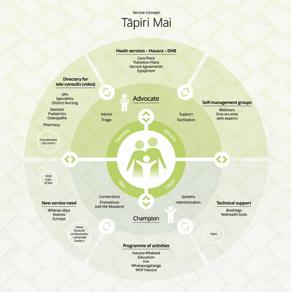
To illustrate these relationships and the work being done, representatives from Te Awanui Hauora, Hato Hone, Ngāti Kahu Hauora, Gate Pā Medical Centre, Fifth Avenue Family Practice and the WBOP PHO, took our manuhiri through their various approaches to primary health care, within their unique communities.
“The aim of our visit to the Western Bay of Plenty, and other PHOs, is to gain a better understanding of the different needs, and therefore approaches, of various populations across New Zealand,” explained Dame Karen Poutasi.
The visit to Tauranga Moana included a boat ride to Matakana Island, visits to Gate Pā Medical Centre, Fifth Avenue Family Practice and the WBOP PHO offices, where attendees could hear first-hand, the challenges, achievements and diversity of enrolments, from rural settings to urban and across all quintiles.
Matakana Island visit focused on Tāpiri Mai Distance Healthcare – a whole of system approach building and promoting solutions and services (primarily digital), co-designed with two rural island communities (Matakana and Mōtītī Islands) who face challenges with equitable access to healthcare.
The transformative journey to enhance access to wellbeing and healthcare started in 2020, when telehealth emerged as a priority, prompting the development of video consultation equipment, workflow optimisation and digital proficiency.
Notably, an indigenous model of care, Tāpiri Mai, was codesigned with the community, underpinned by sustainable objectives. The Tāpiri Mai model can be used across different communities, it is not a one size fits all approach, and it allows for unique factors to be accommodated.
Dame Karen Poutasi, noted, “It is important that we look at other ways of doing things, like the Tāpiri Mai model, as it builds on the strength of what has been learned and takes that forward to achieve health outcome goals.”
When GPNZ Chair, Dr Bryan Betty asked Matakana Island community leader Te Uta Roretana “What does sustainability look like going forward, with limited funding?” her response was, “Being ready and being brave. We are and have always been a self-sufficient community. What we need to do now, is grow capability within our community in health care and in pharmacy, so we can continue being self-sufficient in the health care space and not let the lack of pūtea stall us in our aims.”
Matakana Island has two registered nurses, one of whom is now dedicated to Tāpiri Mai mahi, lives on the island and is based at Te Awanui Hauora. Residents receive face-to-face visits with GP, Dr Claire Isham, WBOP PHO clinical director and specialist GP at Ngāti Kahu Hauora, fortnightly, with patients additionally supported through virtual consultations.
We were proud to see Tāpiri Mai, our distance healthcare programme supporting Matakana and Mōtītī Islands, highlighted in NZ Doctor and featuring the Ngāti Kahu Hauora Clinical Team.
The article portrayed the project's challenges and achievements, emphasising how trust and relationships are pivotal in achieving optimal outcomes for our communities.
Back on the mainland our manuhiri (guests) spent time at both Gate Pā Medical Centre and Fifth Avenue Family Practice. These two practices are a short car ride apart, but they service two very different populations.
Gate Pā Medical Centre serves a high-need patient population and aims to look after their “unworried unwell.” The practice has four General Practitioners, two Registered Nurses and serves 3,097 people. Quintile 5 makes up 26% of those currently enrolled, with 30.26% of those being Māori and 45% of those being High Needs.
Fifth Avenue Family Practice serves a population of 14,136 people and is the third largest practice in the WBOP PHO network. Māori make up 10.67% and 18.22% of the total population are High Needs. Quintile 5 makes up 18.86% of those currently enrolled.
Both practices believe in accessible, quality whānau health care and taking a personalised approach with their patients. At Gate Pā Medical Centre, they ensure whanaungatanga through the role of ‘Aunty’ with the ethos of “getting things sorted” to support health outcomes. Fifth Avenue Family Practice has approached the needs of their population through co-design. An example of this is where the enrolled population is included in the development of their website and bilingual signage in the practice.
“We are really grateful to have had the opportunity to share how our providers adapt

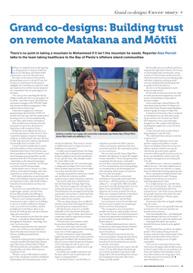

to their communities, in order to meet their needs and that isn’t always following a prescribed structure, A lot of creative thinking goes into that,” noted Lindsey Webber, CEO WBOP PHO.
One word that stood out amongst guests throughout the itinerary, was relationships. Reweti Te Mete, General Manager Ngāti Kahu Hauora, summed it up when he quoted the late Maria Ngatai, who was a hauora advocate and mana whenua kuia, “It is not just about relationships, it is all about relationships.” This was true when it was first spoken, and it remains true today.
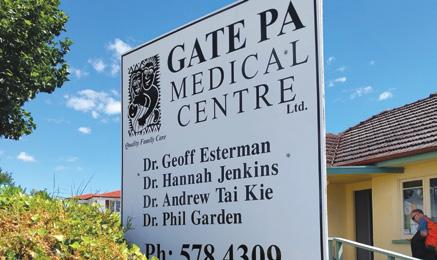

In response to our Board’s priority around improved diabetes care, we developed a more comprehensive single source for diabetes management and performance data, both at a PHO level and patient level for clinician use.
This didn't require new data sources, but rather a shift in how we assess diabetes performance, compare ourselves with our peers and highlight what clinicians need, to achieve the best outcomes for their patients.
By leveraging underutilised data and repurposing existing reporting datasets into a unified dashboard, we were able to connect metrics across our population that were previously unlinked, all without pulling any new data from our provider databases.
Our newly developed diabetes dashboard, issues a call to action for clinicians by focusing on nine primary metrics, each equipped with the same set of demographic layers for comparison.
This system can be utilised at a population level by the PHO for broad analysis, or at a patient level by individual Practitioners to assess a patient's status across any of these nine metrics. It also allows for comparisons with similar patient groups over time, helping to track and evaluate changes in outcomes for everyone.
We will now be able to monitor changes in diabetes outcomes across these metrics over time at the population level and for each individual patient which we previously could not access in a single place.
These metrics are aligned with national best practice guidelines and have also been adopted by our largest peer Primary Health Organisation within the Te Manawa Taki (Midland) region.
This enables regional comparability of the quality of diabetes care provided and sets the stage for a future transition to a comprehensive regional view of diabetes in our community. It also provides insights into
the level of care patients are receiving and the impact that care is having on their health.
This innovative dashboard design establishes a framework that will guide future enhancements in other clinical areas. We'll first expand into Cardiovascular Disease Risk Assessment (CVDRA), leveraging the interrelated datasets used in our analyses, and then move into childhood immunisation, as part of our ongoing System Level Measure (SLM) improvement efforts.
Over the past few years, our Board and Clinical Committee have been dedicated to developing a tailored service evaluation framework with a Te Ao Māori perspective. This framework integrates Kaupapa Māori evaluation methods throughout the entire process—from design and data collection to analysis and reporting—to ensure that Māori values (uara), practices (tikanga), and language (te reo) are respectfully embedded.
This approach aims to evaluate all WBOP PHO programmes and services, including contracted services, with a focus on capturing the untold stories of whānau reflected in the evaluations.
The key aims of this evaluation are to:
• Provide valuable insights and evidence to inform decision-making and guide future service development within the organisation.
• Identify gaps and opportunities for improvement, including the potential for programme replication or scaling.
• Ensure adherence to clinical safety guidelines and standards whilst identifying areas for improvement to enhance clinical safety.
• Foster greater transparency, accountability and trust in the quality of services provided.
In 2023, we held co-design wānanga/workshops with representatives from our PHO and iwi to shape the development of our evaluation framework, "Hāpai i te Hauora o te Whānau, Hāpai te Hauora o te Iwi."
Key measures and indicators will now be codesigned and co-constructed with iwi to ensure they are fit for purpose and infused with a Ngāti Ranginuitanga or Ngāi te Rangitanga perspective. This approach guarantees that the measures and indicators align with our Evaluation Framework and can be utilised for future reviews or proposals.
The HbU (How bout you) Mobile Health Waka service has been a cornerstone of after-hours health and wellbeing support in Tauranga Moana for over 16 years. Initially focused on rangatahi (youth), the service has evolved to encompass a broader approach, recognising that supporting vulnerable individuals effectively, requires engaging with the entire whānau. This organic expansion has allowed HbU to address health, social, welfare, housing and cultural needs across all ages through a community-centric model.
The service facilitates connections with Primary Care Providers, ensuring comprehensive access to a full spectrum of primary care and longterm condition management that goes beyond HbU's scope. HbU Mobile Health Waka remains committed to early assessment, treatment, management and ongoing support, tailoring its approach to resonate particularly with Māori communities.
Emily Gudsell (Ngāi Te Rangi/ Ngāti Tapu, HbU Mobile Health Clinic Manager asserts “By fostering deeper engagement with these communities, HbU ensures that their concerns and needs are addressed swiftly and sustainably, leading to improved access and continuity of care.”
Reflecting on its impact, Dr Murray Hay noted in 2010, "We’ve turned the coin over here and we are trying to make it more comfortable for some patients that would not normally be able to access conventional General Practice services."
Paora Stanley, CEO, Ngāi Te Rangi iwi added, “If you believe in that kaupapa, you have to have no fear….and have the confidence that’s what the people need.”

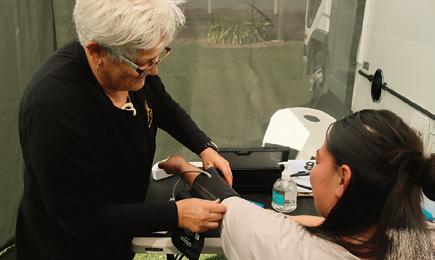

Today, whānau testimonials highlight the ongoing value of the service:
“If it wasn’t for HbU, I wouldn’t be able to afford to see a doctor.”
“As a single mother of two who works, I still struggle to make ends meet, and the after-hours service is much more convenient as I struggle to leave work during the day.”
“It means a lot! Because not being able to get into a normal GP is stressful, especially for my 2-year-old daughter who needs to be seen.”
Fifteen years on, the core mission of HbU remains as relevant as ever, continuing to provide vital support to the community it serves.
Ngāti Ranginui iwi provide Community Nutrition Services, and a key role is to support medium to high need individuals, to better manage their health through improved nutritional choices.
Keighley Wishart, Registered Nutritionist says “Each whānau has unique needs and the nutrition service works closely with them to address their specific goals”.
One trend they are experiencing is restrictive eating, particularly among children who consume only 8-20 types of foods. Neurodivergence, including sensory issues and rigid routines, often contributes to this selectivity.
The service has implemented food-chaining to guide parents in expanding their children's food profiles. Although this approach requires significant patience and commitment from parents, it has proven effective.
The Nutrition Service has received positive feedback.
“One of the most remarkable aspects of Keighley’s support was her provision of a comprehensive nutrition plan. She meticulously crafted a plan that catered to my daughter’s specific needs, considering her health issues and dietary restrictions. The plan not only included delicious and nutritious recipes but also offered healthier alternatives to everyday food.
Keighley’s expertise in nutrition was evident in the thoughtfulness and creativity she puts into designing this plan. In addition to the nutrition plan, Keighley also provided practical advice and tips for my daughter to try. She went above and beyond by suggesting chewing techniques and other strategies to enhance her eating experience.
These small but significant suggestions made a world of difference to her, allowing her to enjoy meals more fully and comfortably. "I also learned more recently that she has a class 3 bite and needs braces so the tools we received from Keighley are helping us to manage until she gets braces".
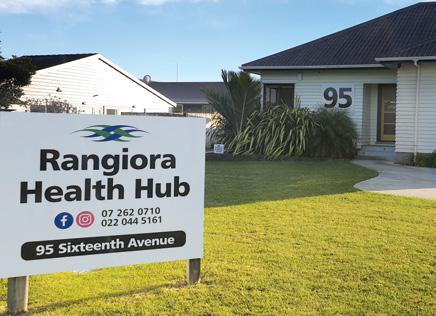




Introducing, Community Services! This year we introduced a new directorate Community Services led by General Manager, Sarah Stevenson. This area covers primary mental health services (the integration of the Health Improvement Practitioners, Health Coaches and the Coordinated Primary Mental Health service), Comprehensive Primary and Community Care Teams (CPCT) and community development initiatives.

All WBOP PHO primary mental health services, including Coordinated Primary Options (CPO) and Integrated Primary Mental Health and Addictions (IPMHA), are now under the Community Services umbrella. This move reinforces our shared vision and commitment to sustainably meet our communities' needs, ensuring everyone has access to appropriate mental health support and education. This realignment and team update reflects our ongoing commitment to improving mental health services and ensuring that everyone in our community has access to the care they need. We look forward to continuing to serve our communities with renewed focus and energy.
The Integrated Primary Mental Health and Addictions Service is a service located within General Practices and is available to anyone whose thoughts, feelings, or actions are affecting their health and wellbeing. It is part of a range of services designed to enhance access to and choice of Primary Mental Health and Addiction Support.
Health Improvement Practitioners (HIP) and Health Coaches (HC) are integrated into the General Practice team to offer brief interventions aimed at enhancing self-management strategies. There are no barriers to accessing this support. This year, 18,104 encounters were made with tangata whaiora by the IPMHAS from Katikati to Whakatāne. ‘Tāngata whaiora’ means people seeking health and is the commonly used term for people who use mental health services in Aotearoa.
Our network includes Health Coaches and Health Improvement Practitioners embedded in nearly all of our General Practices, with a robust presence in the Eastern Bay of Plenty. We have a HIP, Di, and two Health Coaches Camila and Olivia, who work in The Doctors Phoenix and Kopeopeo in Whakatāne. Together they have had 3526 encounters with people in the Eastern Bay, supporting their health and wellbeing. Olivia, a Health Coach at Phoenix who previously worked as a Health Coach in Tauranga, has observed distinct regional health needs: “The demographic in Whakatāne is completely different, with higher diabetes rates across all ages. I have worked with a whānau and after working with me, his HbA1c dropped from 43 to 39 in just three months.”
It has been a busy year for the Health Coach (HC) team. With 19 Health Coaches now recruited, the team has focused on integrating into General Practice and collaborating with community organisations.
While continuing to support tāngata whaiora living with long term conditions such as diabetes, the HCs have also been aiding whaiora with lifestyle management, advocacy and connecting them with appropriate community agencies and organisations.
The HCs have organised coffee and walking groups within their practices to help strengthen tāngata whaiora connections, while also working alongside their HIP and other General Practice team. With the support of the HC team, pilot programs like the Healthy Heart Plan and Rehabilitation programs have been successfully conducted across General Practice.
Increased community awareness about IPMHAS has led to close working relationships with community organisations, particularly The Stroke Foundation, Tauranga Living Without Violence and Grief Support.
With the HC’s embarking on completing their Level 4 qualification in Mental Health and Addiction Support Work, the team’s knowledge is constantly growing and adapting to our population needs.
With a stepped care approach across the service, from funded extended mental health consultations, Health Coaches, Health Improvement Practitioners (HIPs) and Social Workers, through to funded access to specialist talking therapists, we can ensure people receive the right care from the right person at the right time. These enhancements will improve care pathways and ensure targeted access for those who need it.
As a part of our integrated model of care, our General Practice network is embedding the practice of considering the HIPs, in their first thoughts, when they are coordinating patient care for people with mild to moderate mental health issues. HIPs are uniquely placed as they are in almost every General Practice team, and when in the General Practice they try to have 50% of their templates available for same-day appointments and warm handovers from GPs.
The service offers a range of free therapeutic options to support individuals, including social work, youth-focused group therapy, extended consultations with doctors or nurses, and counselling for issues like depression, anxiety and alcohol/drug concerns. This support is delivered within a ‘Stepped Care’ model by a range of contracted and internal specialist therapists.
This means starting with the most suitable and least invasive treatment after discussing the individual's needs and the options for support.
If more support is needed, the service moves to more specialised services. This ensures personalised care that matches the individual's needs at every stage. As one of the PHO’s busiest services, referrals can be made by a doctor, nurse practitioner, school nurse, school counsellor or Health Improvement Practitioner.
WBOP PHO received one off funding from Te Whatu Ora to place CPCT roles within some General Practices that were identified by Te Whatu Ora as having higher Māori, Pacific Peoples and rural populations, to support the development of CPCT Teams. CPCTs are complementary roles to work alongside and support General Practice services creating new opportunities for health care in our communities.
This is a Te Whatu Ora commissioning initiative that enables local tailoring governed by a WBOP Design Group of organisations that received
Impact is evident in the heartfelt feedback received. One patient noted, "Never once judged me or made me feel disabled. She doesn’t feel like a ‘caseworker’. I don’t feel like a number."
Another mentioned, "It is the first time that we have ever felt this level of support in over 29 years of health problems."
CPCT funding (including the WBOP PHO, Ngā Mataapuna Oranga (NMO), Poutiri Trust and Ngāti Ranginui iwi). These health workforce roles might be integrated inside General Practice, a Community Hub or run as a mobile service and are expected to be placed in late 2024.
Alongside the CPCT contract is a Workforce Development fund intended to train, support and mentor primary and community health kaimahi, helping grow and strengthen roles in Primary and Community Care settings.
"We’re really excited to be part of this CPCT project and ready to work with whānau for better health outcomes."Ruakapua Bristowe, Practice Manager, Ngāti Kahu Hauora (a CPCT identified Practice).



In August 2023, the WBOP PHO Executive Leadership Team approved the establishment of the PHO Project Management Office (PMO).
The intent of the PMO is to uphold our values by:
• Contributing to the successful delivery of projects and initiatives by managing
– Governance
– Planning and initiation
– Execution and monitoring
– Resource and risk management
– Reporting and communication
– Lessons learned and best practice

By November 2023 the PMO had in place a Terms of Reference, a PMO Charter, a Project Management Platform, skilled kaimahi and several projects underway. Process mapping was reviewed, finalised and implemented.
As of the 30th of June 2024, the PMO had completed 10 projects and had 22 active projects underway. Project Teams are comprised of members from across the organisation, which ensures that there is cross pollination of information, ideas and expertise, negating silos. The Executive Leadership Team and all kaimahi have a view of the status of all projects.
In addition to the local impact of the team we have instigated a national PHO Project Management Office User Group which meets monthly to share ideas and initiatives. This User Group was initially comprised of Project Team Leads and Project Managers, from seven PHOs located across the motu and continues to grow.
By adhering to a defined scope, objectives and key components, the Project Management Office has become an asset in streamlining project execution and achieving strategic goals. It is a pou (support) for the organisation's mission, to provide high-quality primary health services for our whānau.
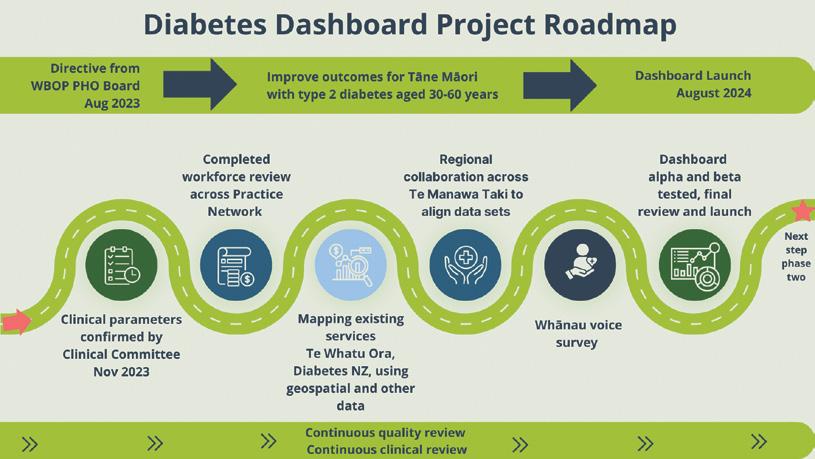
As part of the PHO Board Strategy of 2023, the WBOP PHO Executive Leadership Team was tasked with a new project to improve the hauora of Tane Māori with diabetes. They particularly wanted us to provide a lens on the cohort aged 30 to 60 years.
The PMO worked with the PHO’s Clinical Director, Clinical Committee, Population Data Analyst and the Data & Digital team.
Positive outcomes from the project included:
• The expansion and updating of the Diabetes Education Plan by our Diabetes Nurse Specialist for the General Practice Network
• Revision of referral and Health Pathways information to support best practice
• A strong and enduring relationship developed with our secondary care colleagues to support each other, the General Practice Network and most importantly, our tangata whaiora.
This PHO Board directive was a catalyst for the formation of the PHO Project Management Office (PMO).
"...the PMO has been working collaboratively with TCC (Tauranga City Council), local community and health services, to support and bolster the delivery of health services to this population."
PROJECT SPOTLIGHT:
Following the priorities and actions assigned to the WBOP PHO in the Kāinga Tupu Western Bay of Plenty Homelessness Action Plan 2023-2028, the PMO has been working collaboratively with TCC (Tauranga City Council), local community and health services, to support and bolster the delivery of health services to this population.
In 2024, the PMO connected with and visited comparable services in Rotorua, Hastings, Upper Hutt, Dunedin and locally, to gather key learnings and inform our next steps. This research was valuable in building relationships as well as understand the unique challenges and opportunities in this space.
The team is now working with local clinicians and services to develop an assertive outreach pilot service. This service will use a bespoke
and whānau-centric model of care, designed with deliberate attention to the unique health needs and social determinants that contribute to homelessness and housing stress.
The PMO will be supporting TCC in organising the Aotearoa Homelessness Summit to be held on the 6th of March 2025, which will present an opportunity to invite influential figures in this space to connect and share their experiences and successes.
As a team, they are also supporting connections to develop “Te Paiaka” – a special advisory panel of individuals with lived experience of homelessness or housing stress across Tauranga Moana. The role of this group is advocacy, raising awareness, addressing myths, highlighting the issues of homelessness and housing stress, as well as helping to shape service design and delivery. This will support future plans and initiatives in being fit for purpose.


As promoted in our previous Annual Report 2022 - 2023 (pg. 11), Investing in Our PHO Whānau, we are proud to share the outcomes of this investment and congratulate our first cohort of WBOP PHO leaders who graduated on the 19th of June 2024.
The Foundation Leadership Programme – Leading Others Training was facilitated by Suzanne Wilson from Icing Training, and spanned three intensive days, which were spread over 2 months with practical applications of concepts in between.
At our graduation ceremony, participants shared their key learnings and achievements with their line managers. It was encouraging to witness the positive impact the course has had on each kaimahi and their teams. The PHO started implementing its Leadership Development Framework, which is centred around, Leading self – Self Leadership, Leading others and Leading the Organisation.
We became an official accredited employer through Immigration New Zealand which allowed the PHO to further support existing staff to residency and help them on their journey to calling Aotearoa home. This also opens opportunities to further grow the existing workforce and seek talented migrants.
It is our core belief that everyone has the right and expectation to be able to work in, and visit, our organisation without fear of discrimination, bullying or harassment. Associates in this context may include contractors, visitors, committee members, partners and governing board members. Staff have the right to expect the following:
• They will be treated with kindness, professionalism and respect
• Their differences will be accepted and celebrated
• Less-than-optimal performance will be addressed respectfully
• Bullying behaviour will not be tolerated at any level of the organisation
Staff new to management roles will be given leadership training to guide them in achieving high outputs from their staff while maintaining professional and appropriate behaviours.
As a way of expressing our PHO value of Whanāungatanga – Inclusiveness and sense of belonging, we celebrated Diversity Day on the 9th of August 2023 with colleagues.
This involved talking about where people were born, any story or whakapapa behind their name, favourite or typical dishes and places of significance. We learnt a lot about our fellow colleagues, cultural backgrounds and we also got to eat a diversity of kai at the same time.
The importance of personal sharing is in creating a workplace where everyone feels a sense of belonging and part of our whānau. We will not always agree or think the same way, but we will respect each other’s differences.

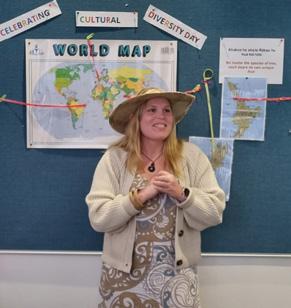
To matou reo, to matou ohooho
– The Awakening: our language, our realisation
It is not only on Diversity Day that we talk about our whakapapa. We also have an opportunity for any team member, to share their cultural tale. It could be about their upbringing, values, beliefs, whānau traditions, their language and whatever is important to them.
When we seek to understand and celebrate diversity, we can learn to respond in culturally intelligent and relational ways. There are known benefits for a culturally responsive organisational culture. They tend to:
• Recognise, celebrate, and leverage difference and diversity
• Respond versus react, and critically reflect on unconscious biases and value systems
• Possess a strong learning culture and commitment to continuous improvement
Te Ohonga is a ceremony practiced in waking ourselves up such as karakia passed down or knowledge. He taonga te reo, he taonga te matauranga hoki. Language is a treasure, as is knowledge.
Reo is not just pertaining to language itself but can encompass how we speak highlighting all our learnings in life, our pedagogies and celebrates our different cultures.
Our goal is to create a workplace culture that respects and values the diversity of beliefs and backgrounds among employees while honouring cultural traditions inclusively and respectfully. We encourage everyone to read the policy and reflect on how it can enhance our work environment.
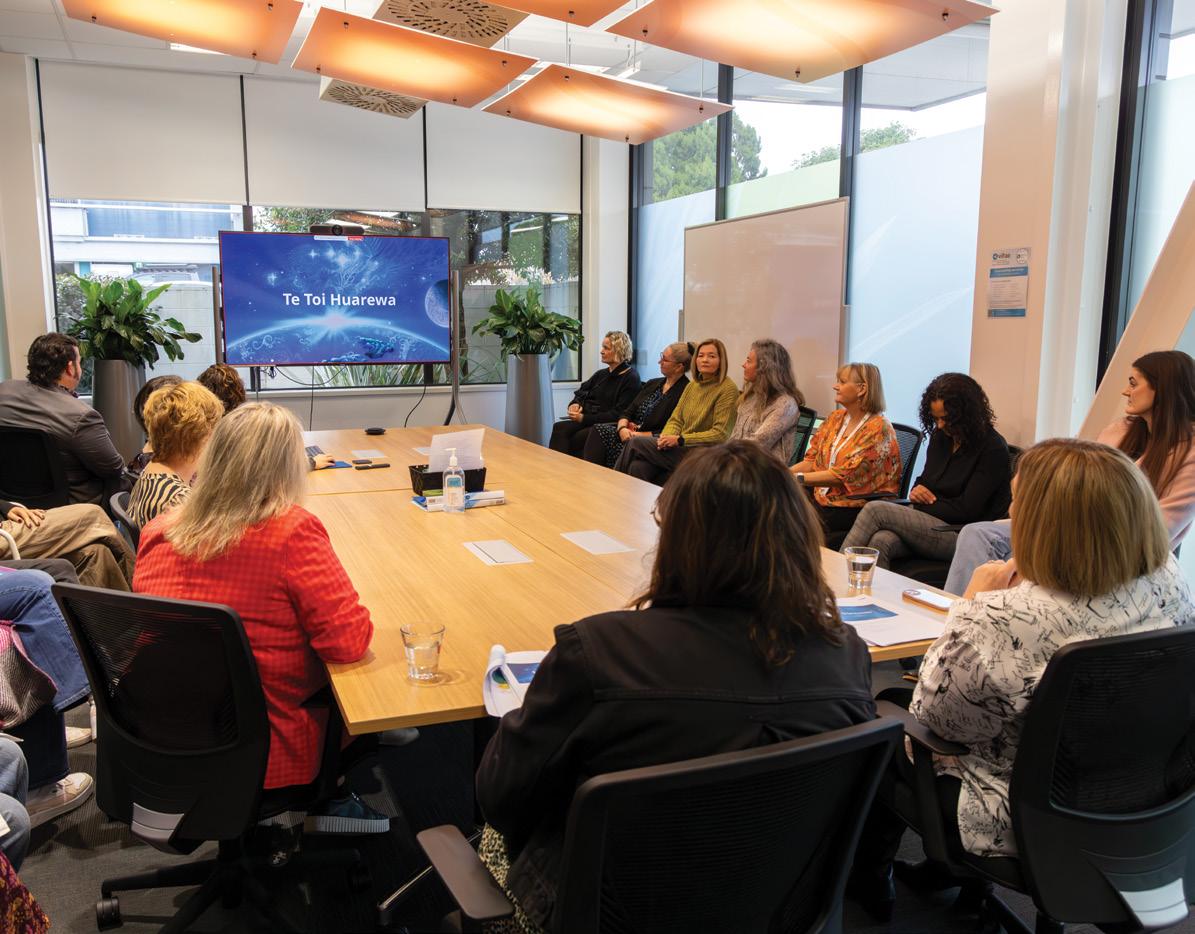

The operations team, which includes Data & Digital, Finance, Office Management and Contracts, focusses on optimising overall organisational efficiency, improving service delivery and ensuring seamless coordination across departments. The year been, we have implemented key process improvements, that have resulted in cost savings and enhanced operational performance, positioning us well for the year ahead.
"The team has concentrated on enhancing visibility into security events, reviewing the effectiveness of existing security tools, defining robust response frameworks and generally bolstering security across our IT landscape."
The Data and Digital team successfully finalised the three-year Technology Strategic Plan towards the end of the annual reporting period. Known as, SOAR (Securability, Operability, Accessibility and Recoverability), this strategic plan provides the necessary focus areas and direction for improving IT services across the organisation and laying the groundwork for significant advancements.
A key component of implementing this plan has been the emphasis on Cyber Security, particularly as it pertains to the PHO. The team has concentrated on enhancing visibility into security events, reviewing the effectiveness of existing security tools, defining robust response frameworks and generally bolstering security across our IT landscape.
Recent global incidents, such as the 2024 CrowdStrike service interruption, have underscored the importance of having robust business continuity plans and disaster recovery processes in place. In response, the Data and Digital team is developing a Security Incident Response Framework based on the 4 Rs of Data Security: Resist, Restrict, Recover, and Report.
This framework, along with a thorough review of our existing Business Continuity and Disaster Recovery plans, will ensure the organisation is well-prepared to manage unexpected events.
Additionally, the team completed the development and delivery of the Six Week Immunisation data sets, addressing previous gaps in data feeds from the Aotearoa Immunisation Register (AIR) and the National Immunisation Register (NIR) to the PHO. This accomplishment was crucial for fulfilling quarterly and end-of-month reporting requirements by June.
The Emergency Patient Care Coordination (EPCC) initiative also saw progress, with workshops conducted to capture key requirements. Acute ECG has been identified as the first program to be released, and after a thorough consultation and review phase, the specifications are ready for development to begin, in collaboration with DataCraft Analytics.
Looking ahead, the team is preparing for a comprehensive security review scheduled for September 2024. This review will involve an annual assessment against the HISO Standards (ISO27001) to determine what additional work is required to meet these rigorous standards.
In tandem, a penetration test of the PHO environment will be conducted by a nominated provider. This test aims to uncover vulnerabilities that could expose the organisation to malicious external threats.
"...work together to share responsibility for instigating, developing, and actioning measures designed to safeguard the health and safety of our employees."
At the PHO, we are committed to creating an environment of inclusivity, where people feel a sense of belonging and purpose. A place where mental and physical wellbeing are the priority, a place that is safe and positive.
Our Health and Safety Committee includes staff and management who work together to share responsibility for instigating, developing, and actioning measures designed to safeguard the health and safety of our employees.
As part of our health and safety responsibilities, we have health and safety representatives who attend monthly Health and Safety Committee meetings, fire wardens who carry out bi-annual fire drills, and certified first aid officers at both of our sites – First Avenue and Whakatāne.
All new employees receive a health and safety induction and a workstation assessment.
All staff are involved in the annual national ShakeOut, which reminds people of the actions to take during an earthquake – Drop, Cover, and Hold.
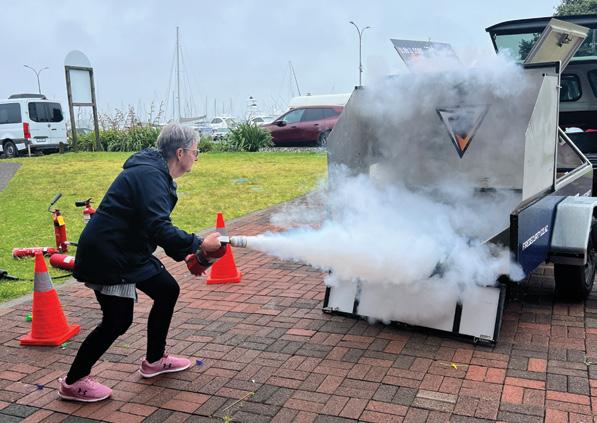
Being a fire warden comes with much more responsibility than just wearing a Fluro vest. We took this to heart and sent our wardens along to training in order to gain knowledge and skills to carry out an effective fire and emergency plan.
Fire warden training is a legal requirement of the Fire and Emergency NZ Regulations. The course our team went on, was through the Fire Security Services and is designed for anyone, from those that have never been trained to be a fire warden, to those that just need a refresher.
It was in-person and covered the following:
1. Introduction to Fire Safety: Understand the principles of fire safety, the causes of workplace fires and the importance of adhering to fire safety legislation.
2. Fire Warden Roles and Responsibilities: Learn the key responsibilities of a fire warden, including liaising with emergency services, conducting routine inspection, and maintaining fire safety equipment.
3. Fire Prevention: Gain knowledge on how to minimise fire risks, identify potential hazards and implement appropriate control measures in the workplace.
4. Emergency Evacuation Procedures: Become familiar with effective evacuation plans and procedures, including understanding assembly points, escape routes and the use of fire doors.
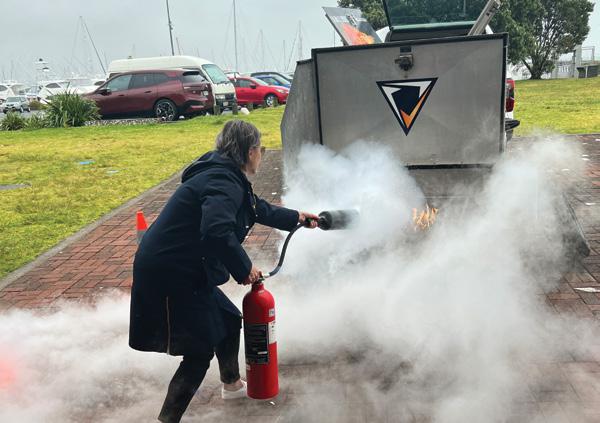
The key benefits of Fire Warden Training included:
1. Expert Guidance: Gain valuable insights and support from qualified trainers.
2. Improved Compliance: Equipped with the knowledge to meet the regulatory requirements of fire safety and avoid potential fines or legal penalties.
3. Enhanced Workplace Safety: Safeguards business assets and reduces the risk of operational downtime caused by fire incidents. Fire Warden Training saves lives!
We got to put this in action during our six-monthly fire evacuation practice on Wednesday, 19th June, was a success, with all 72 people evacuated in just three minutes. This was the first fire evacuation performed with our new upstairs neighbours.

Looking forward to the 2024/25 year, and in the midst of a changing and uncertain landscape, our focus on collaborative partnerships remains strong and unwavering.
We have shown that improving health and wellness and eliminating health inequities for whānau can only be achieved by a team effort that reaches deep into our General Practice and iwi provider networks, our relationships with community health and social service providers, our Iwi Māori Partnership Board and our communities themselves.
It is abundantly clear that primary care has a critical part to play in the future of an effective and sustainable New Zealand health system. Our kaupapa is to connect and strengthen local networks, elevate whānau voice and deliver on our promises to our community.
Over the coming year the following areas of focus will support us to achieve our goals:
• Continuing to make equity gains across our network through our Equity champions rōpū, our health dashboard developments and a new Quality Plan for practices
• Using collaborative approaches to achieve better health outcomes, particularly for tāne Māori, with a focus on engagement, more effectively managing long term conditions, preventing disease and improving overall well-being.
• Working in partnership with Diabetes New Zealand on a new programme with a Diabetes Care Coordinator to support whānau who have multiple hospital admissions and little or no access to primary care
• The development of a new Diversity and Inclusivity training programme for kaimahi, updating of our policies to reflect our commitment and linking to our values
• Walking our talk as NZ Diversity Awards finalists and continuing to work towards being a Te Tiriti centric organisation
• Implementing a new Programme Review Cycle – a formal process to ensure all programmes are meeting the needs of our community
• Development of a PHO Network Quality Dashboard. Following the success of the newly implemented diabetes dashboard, we will co-design another dashboard for the Network that will align closely with our PHO Quality Plan
• Evaluating and applying learnings form the Comprehensive Primary and Community Care Team pilot and further developing the workforce development fund initiative, to support equitable access to training and development for all kaimahi working in the sector
• Redesigning our primary mental health and addictions services to streamline and improve access across the continuum, from prevention and self-care right through to referral into secondary services
• Continuing our partnership work with The Stroke Foundation to upskill our workforce in stroke prevention and recovery
• Advancing our Prehabilitation Project, working with our secondary care and community colleagues to ensure whaiora are well prepared for surgery
• Seeking out and building new partnerships with other community organisations that support holistic health and wellbeing approaches
Taking these broader approaches to health and wellbeing will continue to help build strong support networks for individuals and whānau. We believe these networks are essential for addressing the broader determinants of health that affect well-being.
By coordinating our efforts, we can make more efficient use of resources, avoid duplication of services and reduce costs. This will ultimately lead to a more sustainable healthcare system and smarter allocation of our precious resources.
To view the WBOP PHO Annual Financial Report for the year ended 30 June 2024, please scan the QR code below.


